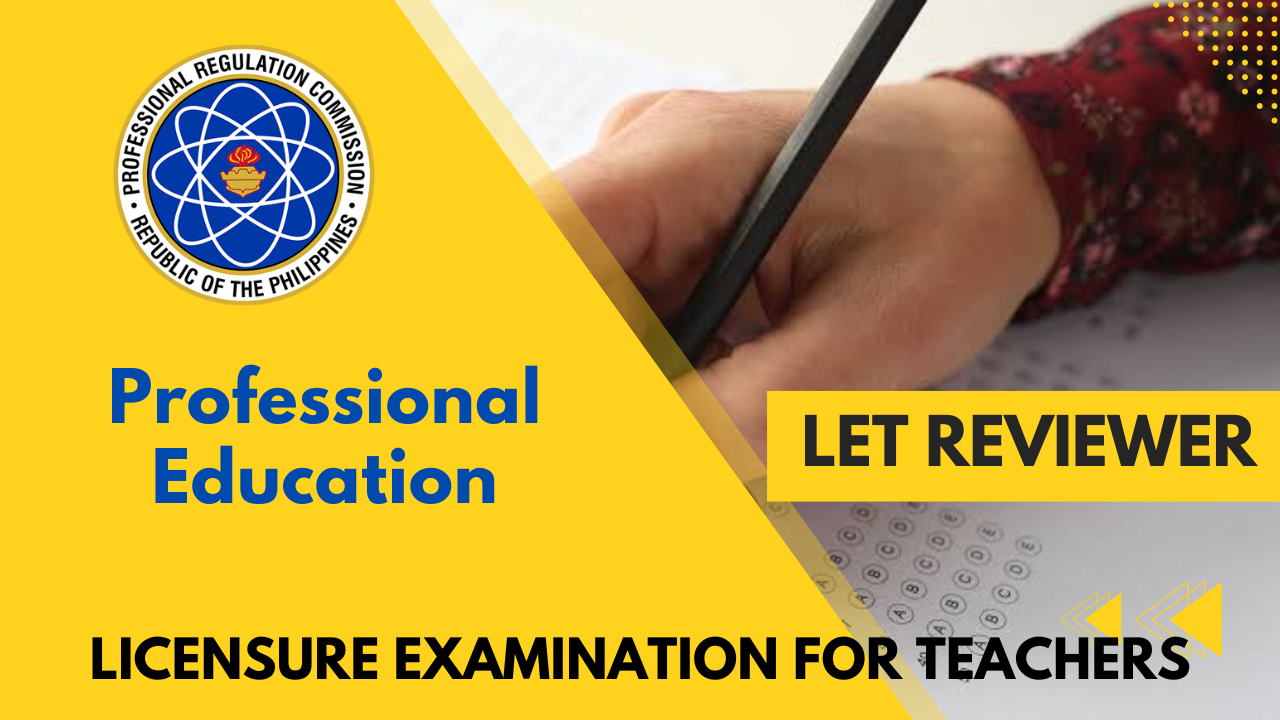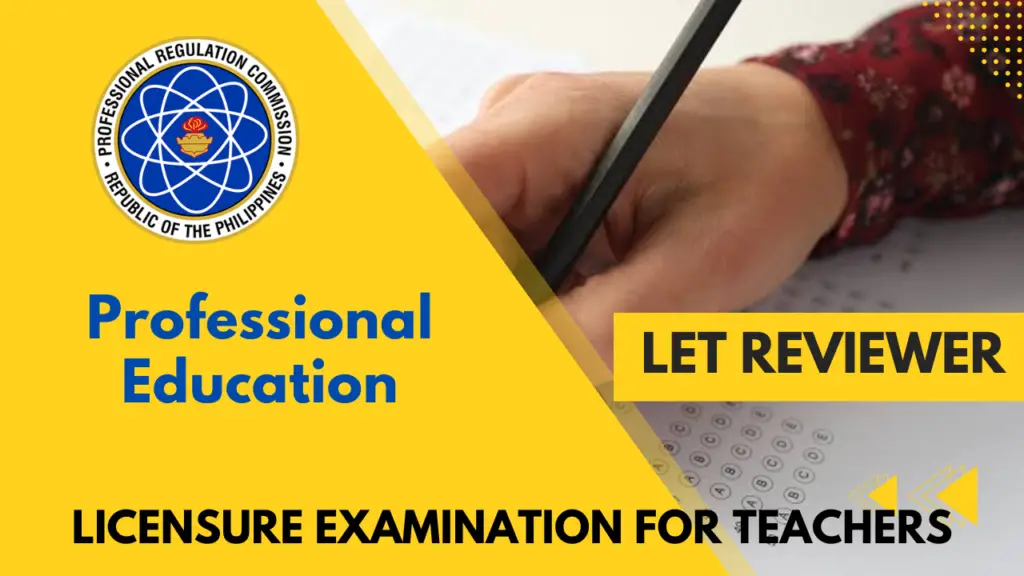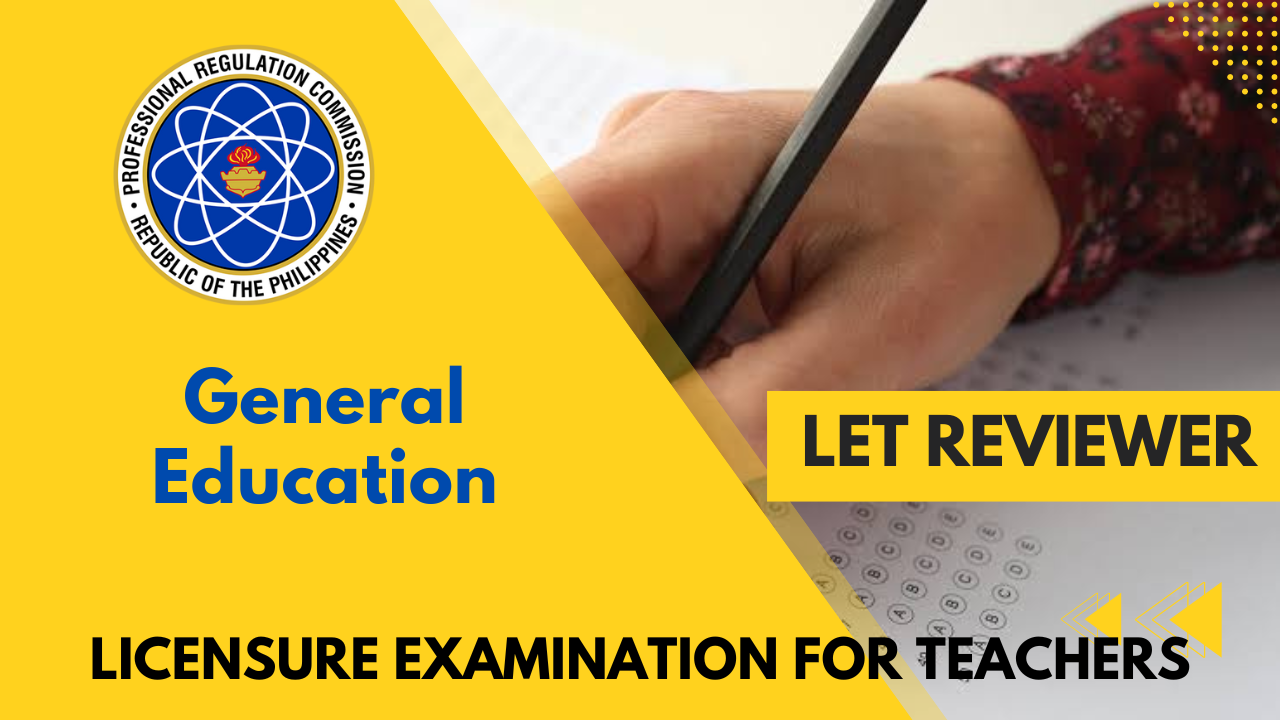
Professional Education in the New Curriculum
ACTUAL BOARD EXAM IN PROFESSIONAL EDUCATION – SEPTEMBER 2023

Periodic Test 40% 84.8
Quizzes 15% 89.4
Recitation 25% 87.2
Homework 5% 86.6
Themes/Experiments 15% 89.8
A. 89.36
B. 89.63
C. 86.93
D. 86.39
C. 86.93
A. Feeling confident in decision-making
B. Building a reflection practice based on proven technique
C. Contributing to professional culture of teaching
D. Creating meaningful and lasting change for the school
B. Building a reflection practice based on proven technique
A. Administer to equivalent test to the same group of students.
B. Administer two parallel test to different group of students.
C. Administer two different test but to the same group of students.
D. Administer a single test but two different groups of students.
A. Administer to equivalent test to the same group of students.
A. Teaching-learning approach that’s beyond the learner’s developmental stage to challenge the learner.
B. Teaching-learning approach that fits the learner’s developmental stage and so fosters the learner’s development.
C. Teaching-learning approach that is simple and easy to fit to all types of learners.
D. Teaching-learning approach that is multicultural and inclusive
B. Teaching-learning approach that fits the learner’s developmental stage and so fosters the learner’s development.
A. Life span development
B. Autonomy
C. Collaboration
D. Peer assistance
C. Collaboration
A. Reading of long passages in class
B. Live lectures and lesson presentations
C. Making class agreements
D. Orientation and briefing on rules, prospects and/or requirements
A. Reading of long passages in class
A. List of courses and corresponding course requirements
B. Collection of course syllabi
c. List of subjects/courses to be taught in school
D. Total learning experiences of individuals not only in schools but in society as well
D. Total learning experiences of individuals not only in schools but in society as well.
A. Department of Tourism documentary video footage played from YouTube
B. Colorful photos posted through Facebook and Instagram accounts
C. Photographs downloaded from the Google and flashed on screen using LED projector
D. Pictures taken using cellphones
A. Department of Tourism documentary video footage played from YouTube
A. Drills
B. Motivation
C. Persuasion
D. Guidance
D. Guidance
A. Achievement
B. Measurement
C. Feedback
D. Evaluation
B. Measurement
A. To basic knowledge
B. To new knowledge
C. To past knowledge
D. To the same knowledge
B. To new knowledge
A. To determine what class emerges to be the best and the least in the department tests.
B. To find out the validity of the test in terms of difficulty and discrimination.
C. To identify who among students who need remediation on less mastered lessons.
D. To report how many of the students were able to achieve learning of the lesson.
B. To find out the validity of the test in terms of difficulty and discrimination.
A. New knowledge discoveries
B. Compliance with the curriculum
C. Background support of the subject matter
D. Update of trends and issues
B. Compliance with the curriculum
I. Empathy for all forms of life
II. Sustainability as an individual and a community practice
III. Man’s absolute power over the rest of creation
A. I only
B. I, II and III
C. I and II
D. III only
C. I and II
A. Cultures of races and nations
B. Human geography of continents’
C. Problems of countries in the world
D. Well-being of the world as a whole
D. Well-being of the world as a whole
I. Industry Immersion. TechVoc students are sent to food production company and trained in processing meat as culminating activity in their food technology subject.
II. Service Learning. The Education students render free teaching services to street kids on weekends as part of their Edukalye, an extension program.
III. Research/Capstone. The Criminology students share findings of their study to the city.
IV. Experiential/Participatory Learning. AB Political Science students join a public forum wherein they lay down their insights and perspectives on the given issue being discussed.
A. I, III and IV
B. I, II, III and IV
C. II, III and IV
D. I, II and III
B. I, II, III and IV
A. Exceptionalism
B. Exclusivity
C. Inclusivity
D. Multiculturalism
C. Inclusivity
A. Egocentrism
B. Irreversibility
C. Centration
D. Animism
A. Egocentrism
A. Weekly quizzes
B. Regular tests
C. Constructive assessment
D. Periodic exams
C. Constructive assessment
A. Applies learning theories
B. Motivates students to learn
C. Articulates discussions well
D. Participates in action research
C. Articulates discussions well



0 Comments